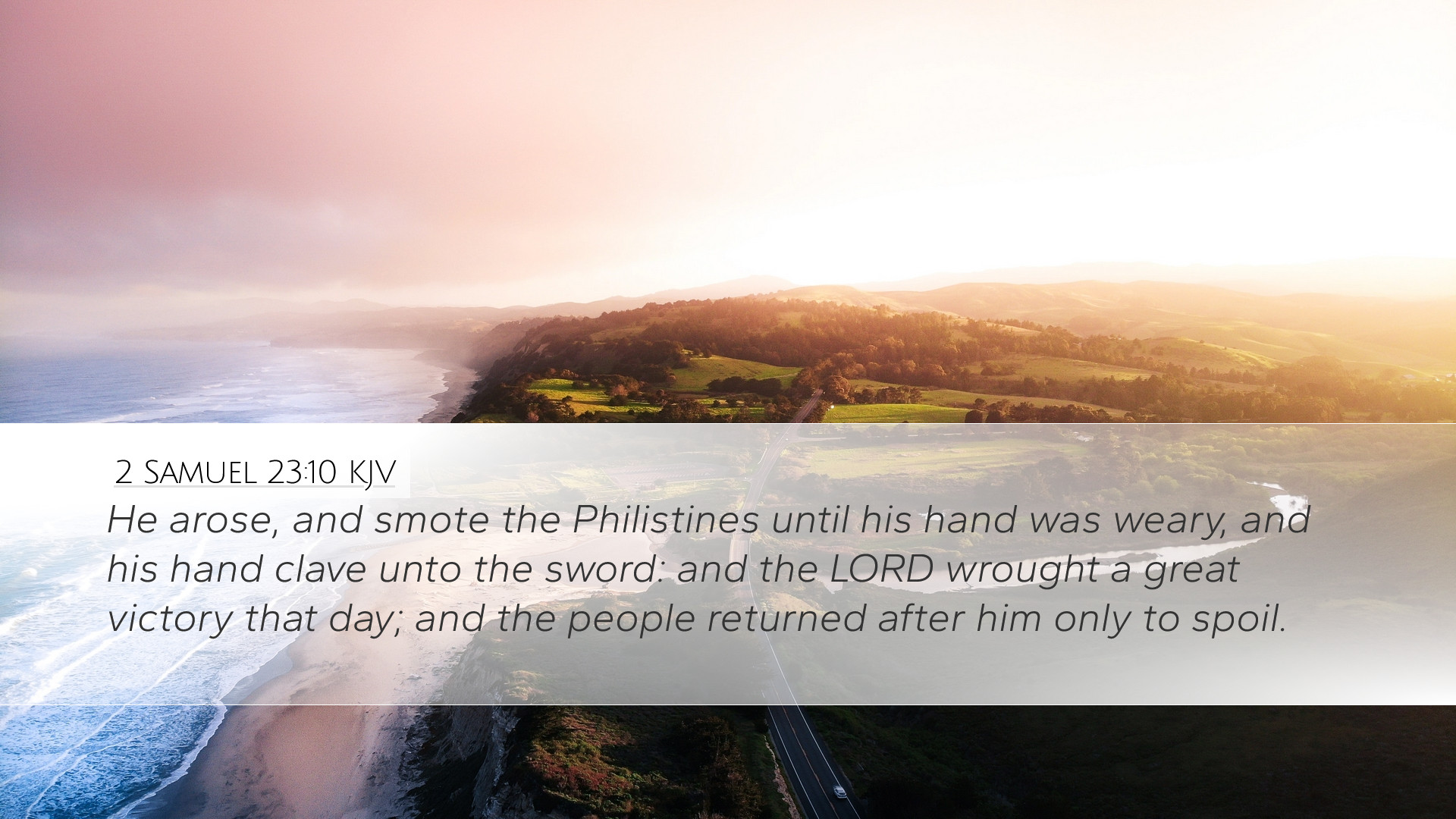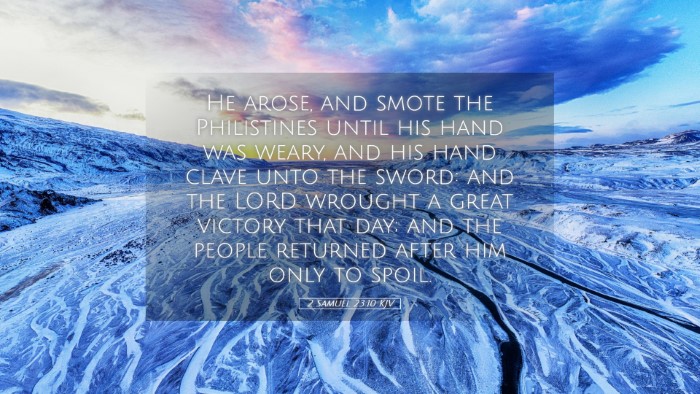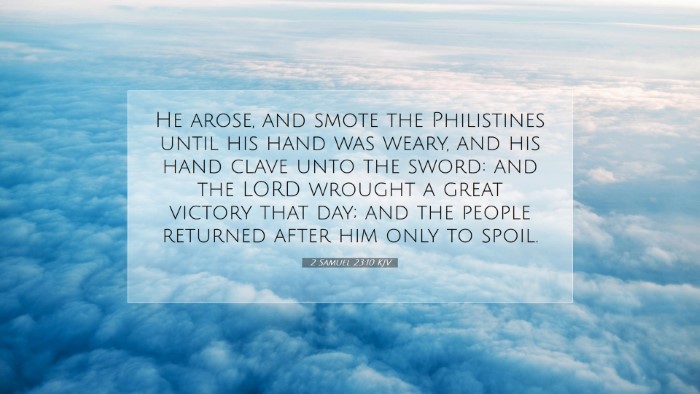Commentary on 2 Samuel 23:10
Verse Text: "He arose, and smote the Philistines until his hand was weary, and his hand clave unto the sword; and the Lord wrought a great victory that day; and the people returned after him only to spoil."
Contextual Overview
The narrative in 2 Samuel provides a historical representation of the reign of King David, and amidst it, the deeds of David's valiant warriors are highlighted. Particularly within this chapter, David's mighty men are celebrated for their courage and exceptional feats in battle.
Analysis of 2 Samuel 23:10
- Valiant Leadership: The figure in the verse exemplifies what it means to be a valiant leader. His readiness to fight against the Philistines underpins the commitment of David’s army to protect Israel. Matthew Henry notes that this individual did not shrink back even when the battle intensified, portraying the essence of bravery.
- Physical Exertion and Divine Aid: The description of the warrior’s exhaustion—"until his hand was weary"—indicates the physical demands of warfare. Albert Barnes emphasizes that despite his physical fatigue, the Lord intervened, providing victory, thus highlighting the synergy between human effort and divine assistance.
- Clinging to the Sword: The phrase "his hand clave unto the sword" can be interpreted as a metaphor for commitment and dedication. Adam Clarke elaborates that this shows not merely the tenacity in battle but also a profound truth about holding onto one's weapon, which could symbolize faith and reliance on God during difficult times.
Theological Implications
This passage unearths several theological themes relevant for pastors and theologians.
- Divine Sovereignty: The statement that "the Lord wrought a great victory" affirms God’s sovereignty over the affairs of men. The victory does not solely depend on human valor; rather, it is God who orchestrates triumphs and successes among His people.
- Human Courage and Divine Empowerment: The warrior's determination provides a vital illustration of the relationship between human bravery and divine empowerment. He fought valiantly, yet it was God who secured the victory. This interplay can encourage believers today to undertake bold actions in their faith, trusting in God’s support.
- the Spoils of Victory: The latter part of the verse, which mentions people returning "only to spoil," invites reflection on the rewards that come from spiritual battles. In the Christian life, while victories are won through God, the results of our struggles can yield fruitful blessings, which connects to the New Testament idea of reaping what one sows (Galatians 6:7-9).
Lessons for the Contemporary Believer
The exhortation from this verse resonates profoundly today. It encourages us to engage in the spiritual battles we face with the same zeal as the warriors of David's time.
- Commitment in Adversity: In our own lives, we are often called to fight spiritual battles against darkness, temptation, and moral decay. The model of the warrior who continues to fight even when wearied encourages believers to remain steadfast and diligent.
- Reliance on God: Acknowledge that battles cannot be won by mere human strength. As seen in this account, victory occurs when we persist in faith while relying fully on the Lord’s provision and power.
- Active Participation: The call to action is clear. Christians are urged to 'take up the sword of the Spirit' (Ephesians 6:17) and be active in sharing the gospel. This warrior’s tenacity can inspire contemporary believers to proclaim their faith boldly.
Conclusion
2 Samuel 23:10 is not simply a historical account of a battle; it is a profound scripture that speaks to the heart of what it means to follow God faithfully amidst life's trials. The combined insights from the commentaries reveal critical lessons on leadership, divine aid, and the importance of spiritual perseverance.


